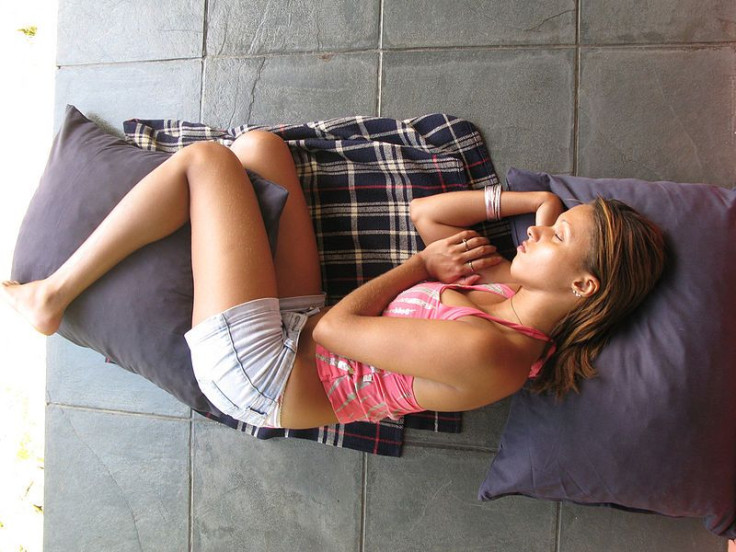Brain Consolidates Motor Learning During Sleep, Improving Muscle Memory

A new study helps to explain what happens in your brain when motor learning takes hold while you sleep.
“We were trying to figure out the specific role of sleep,” Masako Tamaki, a postdoctoral researcher at Brown University and lead author of the study, said in a press release.
The researchers found that the brain organizes motor learning during sleep through a distinct pattern of fast-sigma and delta brainwave oscillations in the supplementary motor area of the brain.
Complex Experiment
Conducted at Massachusetts General Hospital and analyzed at Brown University, the experiment involved a team of researchers working with 15 subjects.
For the first three nights, nine subjects simply went to sleep at their preferred bedtime while their brains were scanned by magnetoencephalography (MEG), which measures the oscillations with precise timing, and by polysomnography (PSG), which tracks sleep phase. This initial stage of the experiment simply helped the researchers establish baseline measurements of brain activity and also accustomed subjects to sleeping in the lab.
On day four, the subjects learned how to do a finger-tapping task that mimicked piano playing; to add to the difficulty of the task, they were required to use their non-dominant hand. Next, the subjects slept for three hours while researchers scanned their brains again with both MEG and PSG. The researchers then woke the subjects and an hour later requested that each subject perform the tapping task. As a control, six subjects who did not sleep after learning the task were also requested to perform the task.
Those who slept performed the task more quickly and more accurately than those who did not.
Oscillations
All in all, the experimenters tracked five different oscillation frequencies in eight brain regions (four distinct regions on each of the brain's two sides). And using an magnetic resonance imaging (MRI) scan as well (performed at a separate time after performance of the task), the researchers could see where the MEG oscillations transpired in each subject's brain. The volunteers who improved in speed and accuracy showed changes in fast-sigma and delta brainwave oscillations in their supplementary motor area (SMA), a region in the top-middle of the brain. Additionally, the changes occurring in the SMA happened during "slow-wave" sleep.
Yuka Sasaki, a research associate professor at Brown University, said she expected the most significant activity to take place in the "M1" brain region, which governs motor control, but instead the significant changes occurred in the SMA on the opposite side of the trained hand. The SMA is normally involved in planning complex movements and in coordinating movements involving both hands.
The extent of reorganization that the brain accomplishes during sleep is suggested by the distinct roles the two brainwave oscillations appear to play. The authors hypothesize the delta oscillations govern changes in the SMA's connectivity with other areas of the cortex, which generally governs bodily movement, while the fast-sigma oscillations pertain to changes within the SMA itself.
"We were trying to figure out which part of the brain is doing what during sleep, independent of what goes on during wakefulness,” Tamaki said in a press release. By employing three different kinds of brain scans, the research precisely quantified changes among certain brainwaves and the exact location of brain activity. Yet, despite proving that sleep aids learning, the researchers have not yet identified why or how.
Sasaki suggested that since consolidation of learning must be an intensive activity, the brain may benefit from sleep perhaps because more energy is available to it or perhaps because distractions and new inputs are fewer.
Since completing this project, the researchers have begun another study of how the brain consolidates learning. In this case, they're looking at visual learning tasks.
"Sleep is not just a waste of time," Sasaki said.
Source: Tamaki M, Sasaki Y, Watanabe T, et al. How sleep helps brain learn motor task. Journal of Neuroscience. 2013.



























